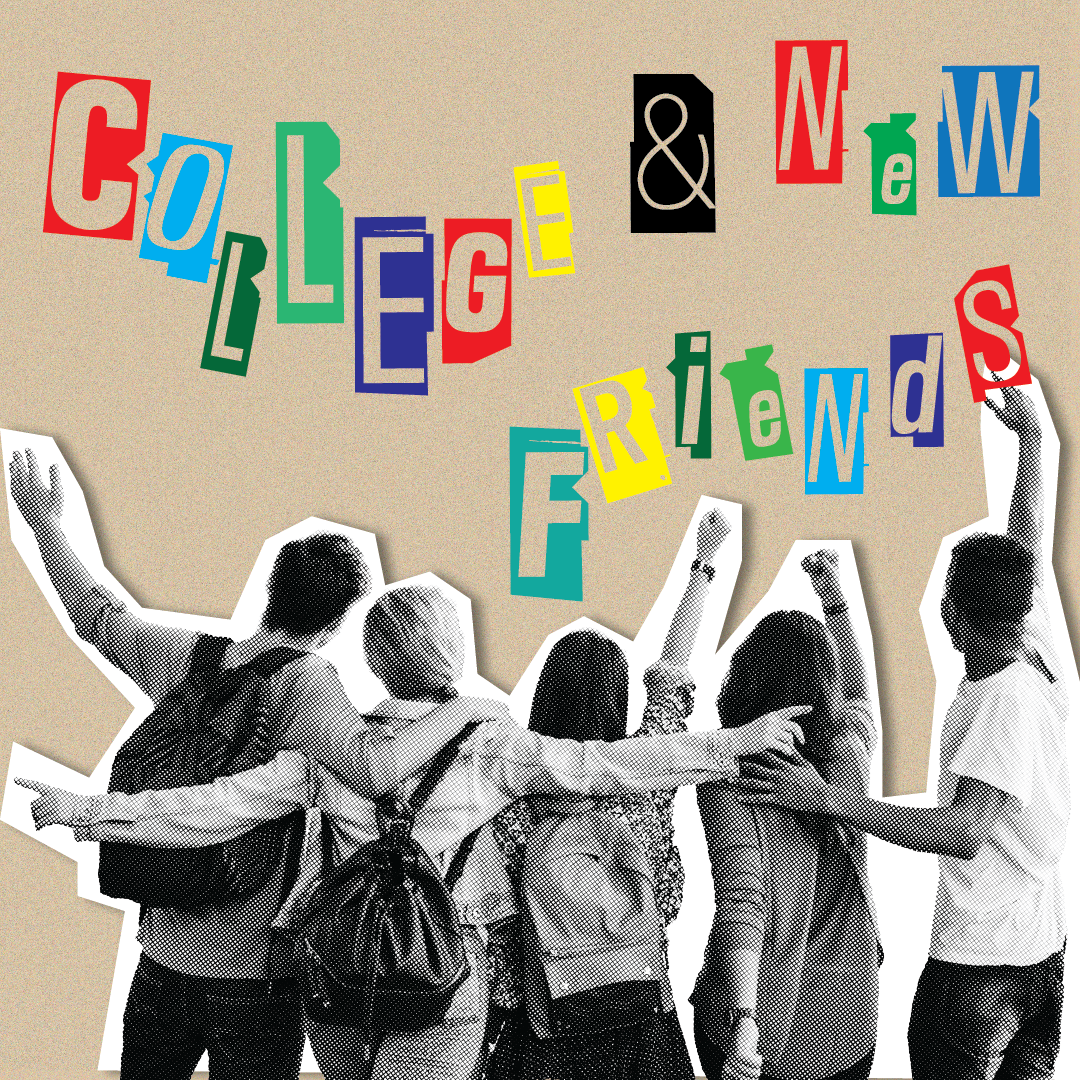A Reflection on Growing Out of Friendships
Graphic by Anneli Paulson
The day I saw “Tolerate It” by Taylor Swift applied to a friendship, everything changed.
Since beginning my college experience two and half years ago, I’ve learned that college is nothing like the movies. Sure some aspects are similar, but my experiences with friendships have been completely different.
Movies give the impression that you meet “your people” freshman year and have the time of your life for the rest of college. In some cases that is true, but it’s more rare than the movies imply.
Friendships are complicated, to say the least. I’ve met some amazing people these past few years, but I’ve also experienced quite a few “friendship breakups”.
There are many reasons friendships end, but two common ones include: growing apart and growing out of friendships.
Growing apart
Sometimes we get lucky and the friendship ends naturally. We move our separate ways and wish each other the best. No hard feelings. No awkwardness. It’s just a part of growing up.
I’ve found this happens a lot with my friends from high school. We went to different colleges and made new friends, started new lives and overall moved on. I still have so much love for them and for the time I had with them.
These friendships are the easiest to appreciate after the fact. The time spent in each other's lives brought joy, laughter, growth and love. Some people describe it as closing a chapter in your life.
Although, this is not exclusive to high school friends. As I’ve entered my twenties, I began letting go of friendships more and more often. Being a little over halfway done with college, my focus has shifted to post-graduation, so finding people who will be there when we no longer just have being in college in common is important to me.
Growing out of friendships
Growing out of a friendship can be really sad and frustrating. There are often negative emotions coming from both sides that can be difficult to navigate.
From either side, you can tell when one person is growing out of the friendship while the other isn’t and it’s often more painful for the person left behind. *Cue “Right Where You Left Me” by Taylor Swift*
If you are the one who grew out of the friendship, the best thing to do is let the other person know. It’s normal to want to move on, but just be polite and don’t ghost them.
When someone I cared about moved on to new friends without saying anything, I listened to “Cool About It” by Boygenius on repeat for a week. It’s always hurtful, especially if it was someone you were close with.
Coming from a person who has experienced both sides, I still find it difficult to let go when I’m the one ready to move on. Sometimes it’s easier to hold onto things because they feel familiar, even if it’s clear there’s not much left of what it once was.
Growing out of a friendship is never something to feel guilty about. Discovering yourself and growing as a person is a natural part of college and life in general, and with that comes losing friends in the process.
Let go, politely, and continue to grow and become the person you want to be.
Making new friends
Once you’ve let go, finding new friends can be difficult, especially after your first year when it feels like everyone’s found “their people.”
Firstly, finding “your people” is a lifelong process and not just a college experience. A beautiful part about being human is that we continue to learn and grow throughout our entire lives and with that comes having different chapters that include different people.
There’s no good answer to how to find friends, trust me I wish I knew. The best advice I can give is to try and look for people that support your growth.
Friendships, and relationships, are really beautiful and special when you are able to grow together and support each other in the process.
There is so much ambiguity in friendships because you truly don’t know how long a person will be in your life. The only thing we can do is appreciate the time we have for others and move on to the next chapter when it’s done.

